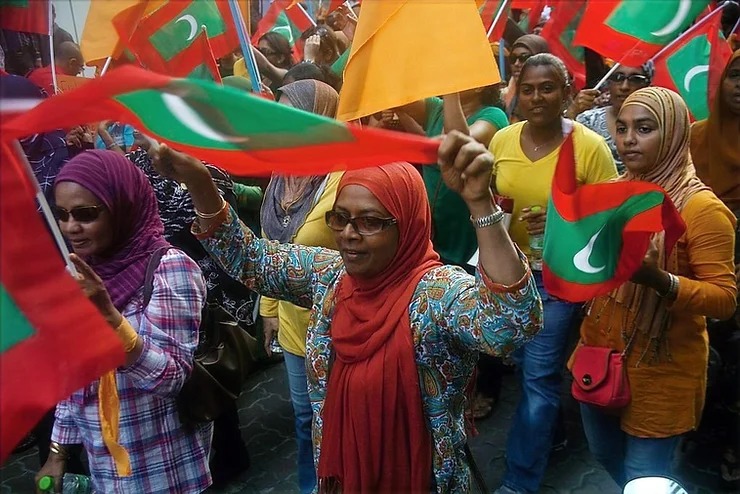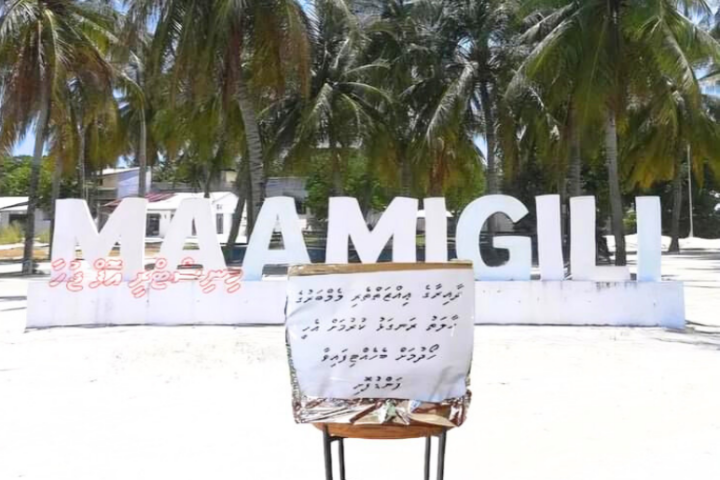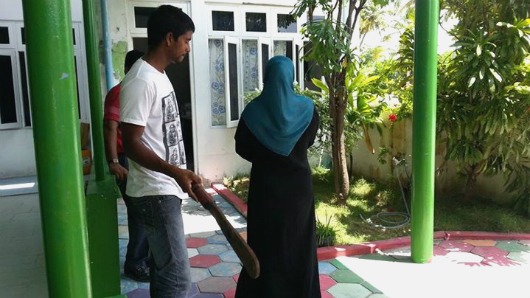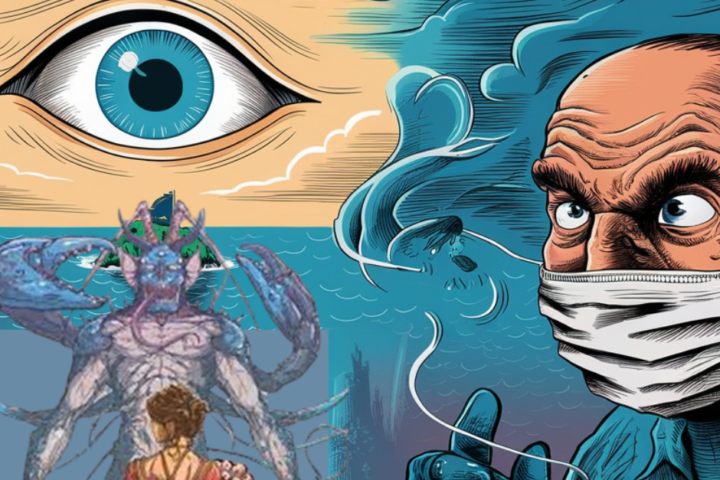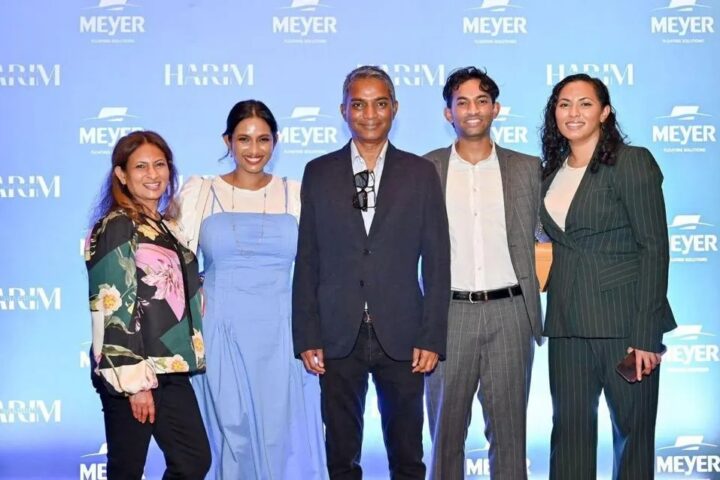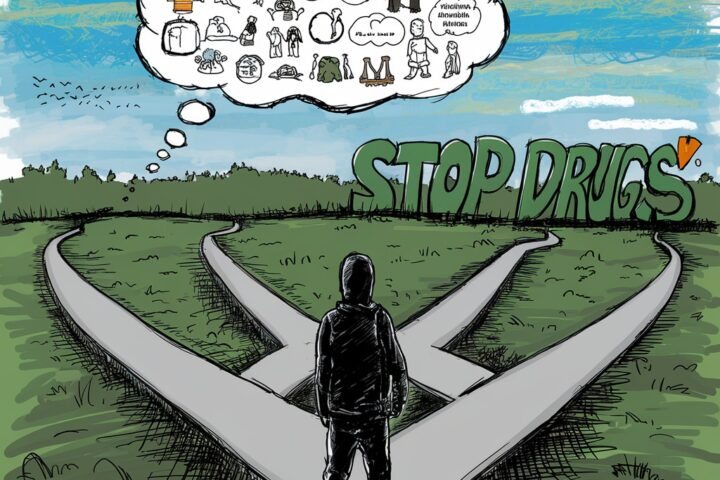A fresh promotional campaign by Dhiraagu, a leading telecommunications provider in the Maldives, is making waves on Twitter for its stereotypical portrayal of gender roles. The advertisement features a macho man in an office setting while a female friend is depicted at home. This depiction has raised concerns, especially in a nation where women are excelling academically and making significant strides in higher education.
According to the Statistical Yearbook of Maldives 2021, in 2019, there were 594 female students enrolled in higher education institutions compared to 443 male students. This trend highlights the remarkable progress Maldivian women have made in education, outpacing their male counterparts. The previous administration, led by President Ibrahim Mohamed Solih from the Maldivian Democratic Party (MDP), was keenly aware of this shift and implemented policies aimed at furthering gender equality. Solih’s administration’s Gender Equality Action Plan, part of the broader National Resilience and Recovery Plan (NRR) 2020–2022, included ambitious goals: increasing the number of women in local government leadership positions by 40% and in the judiciary by 25% by 2025, providing daycare services, initiating gender-responsive budgeting, and revising national data systems to include sex and age disaggregation.
The unemployment rate in the Maldives stands at 5.2%, with women experiencing a higher rate of 5.9% compared to 4.8% for men. This mirrors trends seen in Pakistan, where graduate unemployment has reached 16.1%, disproportionately affecting women, who constitute 51% of the unemployed population. The discrepancy in both countries highlights systemic issues in labor markets that fail to integrate educated women effectively, exacerbating economic and social disparities.
Despite some progress at the local level, women’s representation in the Maldivian parliament remains alarmingly low. The newly elected parliament for the next five years includes only three female representatives. This places the Maldives at 177th out of 183 countries in terms of women’s representation in parliament. However, local governance tells a different story. Thanks to amendments in the Decentralisation Act, 39.5% of local governance positions are now held by women, reflecting a significant step forward in gender equality at the grassroots level.
Historically, Maldivian women have played a crucial role in the nation’s economy, particularly before the tourism boom in 1972. While men dominated the fishing industry, women were integral in processing and selling the catch, thereby contributing significantly to household income. This tradition of economic partnership contrasts sharply with the domestic-focused stereotype depicted in the Dhiraagu promotion.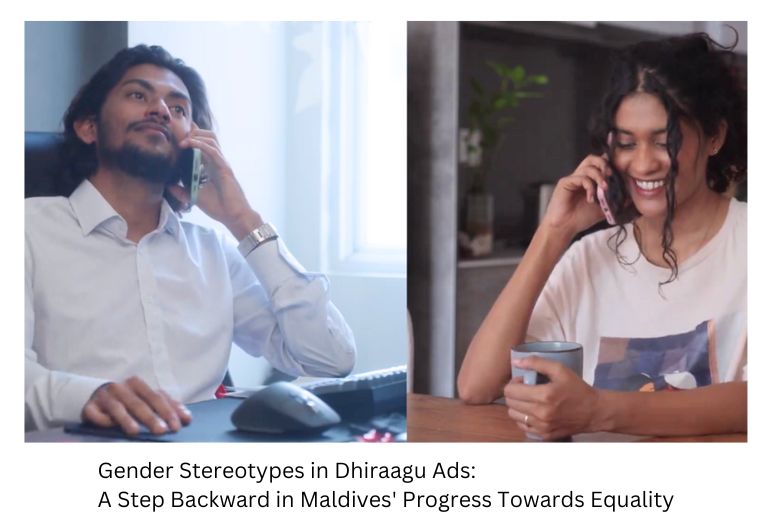
The issue of gender stereotyping in advertisements is not unique to the Maldives. Similar challenges are faced by neighboring Pakistan, where the consequences of gender biases are starkly visible in the labor market. Graduate unemployment in Pakistan has reached alarming levels, particularly among women. According to research from the Pakistan Institute of Development Economics (PIDE), the graduate unemployment rate stands at 16.1%, significantly higher than the overall unemployment rate of 6.3%. Women constitute a disproportionate 51% of the unemployed population. The unemployment rate for graduates in engineering, computer science, and agricultural sciences has seen a steep rise, indicating a severe misalignment between educational outcomes and market demands.
The situation in Pakistan underscores the broader economic implications of not addressing gender biases and educational misalignments. As Pakistan grapples with macroeconomic challenges, the failure to create employment opportunities for its educated youth, especially women, exacerbates social and economic instability. The International Labour Organisation (ILO) has projected that Pakistan’s labor market, still reeling from the impacts of the COVID-19 pandemic and ongoing economic crises, will see unemployment rise to 5.6 million by the end of the year, further highlighting the need for urgent policy interventions.
The parallels between the Maldives and Pakistan serve as a cautionary tale. While the Maldives is making commendable progress in gender equality through educational advancements and policy reforms, the persistence of outdated gender stereotypes in media and advertising poses a risk of undermining these achievements. It is crucial for both nations to address these stereotypes, ensuring that their media representations reflect and support the ongoing societal advancements.
In conclusion, the Dhiraagu advertisement controversy in the Maldives is more than just a social media debate; it is a reflection of the broader societal issues that need addressing. By continuing to promote and support gender equality through education, policy reforms, and equitable media portrayals, the Maldives, under the current administration of President Dr. Mohamed Muizzu, can avoid the pitfalls faced by Pakistan and ensure a more inclusive and prosperous future for all its citizens.
